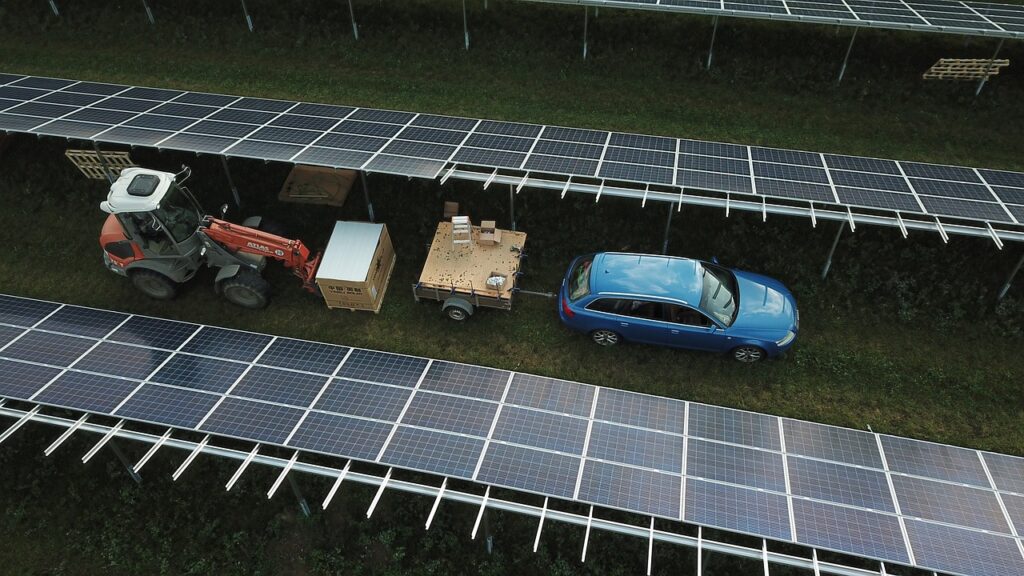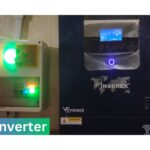As the world steadily transitions towards renewable energy, solar carports have become an innovative solution that combines functionality with sustainability. Not only do they offer a sheltered parking space, but they also harness solar energy to reduce your electricity bills and carbon footprint. In this guide, we will dive deep into the world of solar carports, exploring their benefits, installation process, costs, and frequently asked questions.
What is a Solar Carport?
A solar carport is a structure installed in parking lots or residential driveways that integrates solar panels into its roof. Unlike conventional carports, solar carports are designed with photovoltaic (PV) panels that capture sunlight and convert it into electricity. This energy can power homes, buildings, or electric vehicle charging stations, making it a multifunctional and eco-friendly solution.
With the growing demand for sustainable energy sources, solar carports are increasingly popular among businesses, homeowners, and even large-scale commercial complexes. But what makes them so appealing? Let’s explore the key benefits.
Benefits of Installing a Solar Carport
- Dual Purpose Utility: Solar carports not only protect your vehicle from harsh weather conditions such as sun, rain, and snow, but they also produce clean energy. This dual functionality makes them a smart investment, as they serve both a practical and eco-friendly purpose.
- Energy Savings By: harnessing solar energy, you can significantly reduce your electricity bills. Solar carports can generate power that’s used for your home or office, which means less reliance on the grid. In regions with high electricity costs, this can lead to significant savings over time.
- Tax Incentives and Rebates: Governments worldwide, including the U.S., offer tax credits and rebates to encourage renewable energy adoption. Solar carport installations often qualify for incentives such as the Federal Solar Investment Tax Credit (ITC), reducing the overall cost of installation. This benefit makes going solar more affordable.
- Increased Property Value: Installing a solar carport can boost your property’s value. Homes and commercial properties with solar energy systems are viewed as more valuable due to their energy efficiency and sustainability. As solar energy becomes mainstream, properties with solar carports are likely to attract higher offers.
- Easy Electric Vehicle (EV) Charging: As electric vehicles become more common, the need for accessible charging stations grows. Solar carports can be paired with EV chargers, making it convenient for EV owners to charge their cars at home or in commercial parking lots. This integration saves time and further reduces reliance on non-renewable energy sources.
- Reducing Carbon Footprint: Solar energy is a clean and renewable resource. By investing in solar carports, you contribute to reducing greenhouse gas emissions, air pollution, and dependence on fossil fuels. Over time, this helps mitigate the effects of climate change and creates a healthier environment for future generations.
Solar Carport Installation: What to Expect
Installing a solar carport involves several steps, and it’s important to know what the process entails. Whether for a home or commercial building, the basics remain the same.
- Site AssessmentA professional will visit the site to assess the suitability of a solar carport. They’ll consider factors such as sunlight exposure, space availability, and potential shading. It’s crucial to install the carport in a location where the panels will receive maximum sunlight.
- Design and PermittingAfter the assessment, a customized design will be created for your solar carport. This step ensures the structure fits your needs and complies with local building codes. Permits are also required before construction can begin, and professionals will help you navigate this process.
- Installation: Once all necessary approvals are in place, the installation process begins. Depending on the size of the project, this can take a few days to several weeks. The carport’s structure is erected first, followed by the installation of the solar panels. Wiring and inverter installation come next, connecting your solar carport to the grid or a battery storage system.
- Final Inspection and Activation: After installation, a final inspection ensures everything meets safety and electrical standards. Once approved, your solar carport is ready to generate electricity.

Cost of Installing a Solar Carport
The cost of installing a solar carport can vary depending on several factors, including size, location, and panel efficiency. Generally, the price ranges from $10,000 to $25,000 for residential installations, while commercial projects can cost significantly more.
- Size and ScaleA larger solar carport will naturally require more materials, labor, and solar panels, increasing the overall cost. Commercial projects with multiple carports for large parking lots will be on the higher end of the price range.
- Panel EfficiencyHigher efficiency solar panels may come with a higher price tag but can generate more electricity in the long run. Investing in more efficient panels can result in greater energy savings over time, offsetting the initial cost.
- Local IncentivesDepending on where you live, you may qualify for state or local incentives in addition to the federal tax credit. This can significantly reduce your upfront costs, making solar carports more accessible for both residential and commercial use.
- Additional FeaturesIntegrating your solar carport with features such as battery storage or EV charging stations will increase the cost. However, these additions can provide greater energy independence and convenience in the long run.
FAQs About Solar Carports
1. How much energy can a solar carport generate?
The energy generated depends on the size of the carport, the number of solar panels, and the amount of sunlight the area receives. On average, a residential solar carport can generate enough electricity to power an entire home, while larger commercial carports can provide energy for multiple buildings.
2. Can I install an EV charger with a solar carport?
Yes! Solar carports are an excellent match for EV chargers, allowing you to power your electric vehicle with renewable energy. Many carport designs can accommodate EV chargers as part of the installation.
3. How long does it take to recoup the cost of a solar carport?
The payback period varies depending on factors like energy consumption, electricity rates, and available incentives. Typically, homeowners can recoup the cost within 5 to 15 years, after which they continue to save on energy bills.
4. Do solar carports work in areas with low sunlight?
Solar carports can still generate electricity in areas with less sunlight, though at a reduced capacity. If you live in a region with limited sunlight, you may need more efficient panels or a larger carport to meet your energy needs.
5. Is it possible to add battery storage to a solar carport?
Yes, battery storage can be integrated with solar carports to store excess energy for later use. This feature is especially useful during power outages or peak energy demand times, giving you more control over your energy usage.
Conclusion
Solar carports are a versatile and sustainable solution for homeowners, businesses, and institutions looking to reduce energy costs and minimize their environmental impact. With the added benefits of protecting vehicles, offering EV charging capabilities, and qualifying for tax incentives, solar carports are a worthwhile investment in a cleaner future.
By adopting solar energy through a carport installation, you not only contribute to a greener planet but also enjoy the financial and practical advantages of generating renewable energy.




















